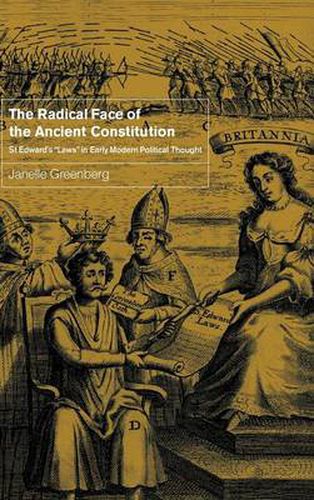Readings Newsletter
Become a Readings Member to make your shopping experience even easier.
Sign in or sign up for free!
You’re not far away from qualifying for FREE standard shipping within Australia
You’ve qualified for FREE standard shipping within Australia
The cart is loading…






This book deals with the ways in which medieval and early modern historians, lawyers and politicians deployed their own national history to justify opposition to the English kingship. More particularly, it is a study of the origins and development of an historical construct called the ‘radical ancient constitution’, a version of the past which originated from sources including the so-called ‘Laws’ of Edward the Confessor. The book tells how a cult of kingship, centred around the Confessor’s ‘Laws’, was transformed from a cult that sacralised the upstart Norman dynasty into one which desecrated the Stuart monarchy. In telling the story of the ‘ancient constitution’ the author reconfigures the historical landscape of early modern England and demonstrates that the so-called Whig version of history, far from being a concoction of seventeenth-century dissidents, enjoyed the sanction of medieval and early modern historians, scholars and lawyers.
$9.00 standard shipping within Australia
FREE standard shipping within Australia for orders over $100.00
Express & International shipping calculated at checkout
This book deals with the ways in which medieval and early modern historians, lawyers and politicians deployed their own national history to justify opposition to the English kingship. More particularly, it is a study of the origins and development of an historical construct called the ‘radical ancient constitution’, a version of the past which originated from sources including the so-called ‘Laws’ of Edward the Confessor. The book tells how a cult of kingship, centred around the Confessor’s ‘Laws’, was transformed from a cult that sacralised the upstart Norman dynasty into one which desecrated the Stuart monarchy. In telling the story of the ‘ancient constitution’ the author reconfigures the historical landscape of early modern England and demonstrates that the so-called Whig version of history, far from being a concoction of seventeenth-century dissidents, enjoyed the sanction of medieval and early modern historians, scholars and lawyers.